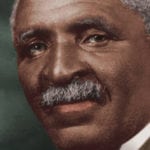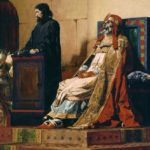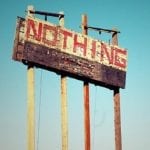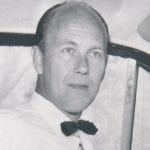 Mysteries
Mysteries  Mysteries
Mysteries  History
History 10 Surprising Stories About the Texas Rangers
 Humans
Humans 10 Philosophers Who Were Driven Mad by Their Own Theories
 Miscellaneous
Miscellaneous 10 Video-Game-Worthy Weapons and Armors from History
 Weird Stuff
Weird Stuff 10 Psychics Who Accurately Predicted Wartime Events
 The Arts
The Arts 10 Pieces of Art Inspired by a Broken Heart
 Health
Health 10 Science Fiction-Sounding New Medical Treatments
 History
History 10 Surprising Facts About the Father of Submarine Warfare
 Space
Space Ten Astonishing New Insights into Alien Worlds
 Weird Stuff
Weird Stuff 10 Bizarre Summer Solstice Rituals Still Practiced Today
 Mysteries
Mysteries Top 10 Haunting Facts About the Ghost Ship MV Alta
 History
History 10 Surprising Stories About the Texas Rangers
 Humans
Humans 10 Philosophers Who Were Driven Mad by Their Own Theories
Who's Behind Listverse?

Jamie Frater
Head Editor
Jamie founded Listverse due to an insatiable desire to share fascinating, obscure, and bizarre facts. He has been a guest speaker on numerous national radio and television stations and is a five time published author.
More About Us Miscellaneous
Miscellaneous 10 Video-Game-Worthy Weapons and Armors from History
 Weird Stuff
Weird Stuff 10 Psychics Who Accurately Predicted Wartime Events
 The Arts
The Arts 10 Pieces of Art Inspired by a Broken Heart
 Health
Health 10 Science Fiction-Sounding New Medical Treatments
 History
History 10 Surprising Facts About the Father of Submarine Warfare
 Space
Space Ten Astonishing New Insights into Alien Worlds
 Weird Stuff
Weird Stuff 10 Bizarre Summer Solstice Rituals Still Practiced Today
10 Historical Figures Who Changed Their Names
It’s hard to dissociate historical figure from his or her name. Yet in many cases, famous people received totally different names at birth. In fact, many of these names were changed for somewhat dubious reasons: clerical errors, fear of being treated unfairly, or pleas for saintly intervention.
10Nelson Mandela
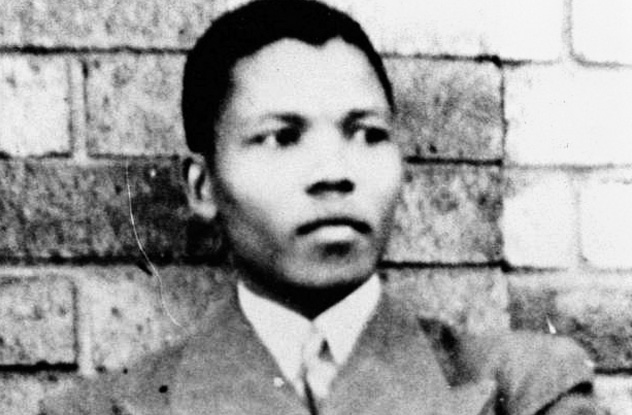
Nelson Mandela was known by many names throughout his life, but most of those names were given to him out of reverence or respect to acknowledge a characteristic clear in the South African leader’s personality. Some of these names included Dalibhunga (“creator or founder of the council” or “convener of the dialogue”), Madiba (his clan name), Tata (“father”), and Khulu (a shortened form of “grandfather” that can also mean “great, paramount, grand”). Mandela’s birth name—Rolihlahla—means “pulling the branch of a tree” but was more commonly understood to mean “troublemaker” and was bestowed upon him by his father.
The name most commonly used for Mandela—Nelson—was applied when the future South African leader began attending school, as it was a common practice for teachers to assign Christian names to students. This was because many of the teachers either could not or would not pronounce the African children’s real names. Nelson Mandela got his name due to the simple whim of his teacher, Miss Mdingane, who wished to make the future leader’s name easier to pronounce for the British colonials.
9Ulysses S. Grant
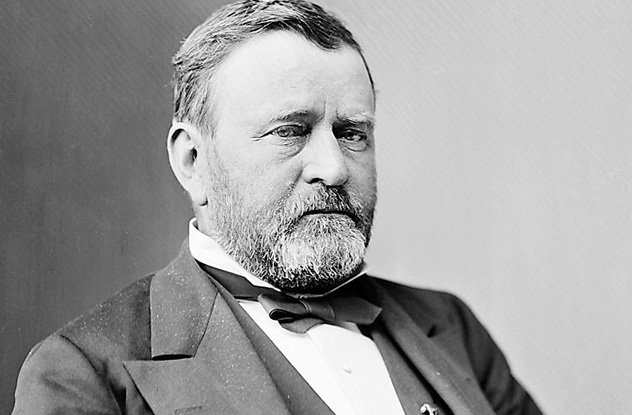
As a youth, Hiram Ulysses Grant went by his middle name. This was somewhat unfortunate since many local boys referred to him as “useless,” partly because he was small and rather quiet. Grant was ambitious, however, and with a little fatherly prodding decided to attend the US Military Academy at West Point. A small issue arose when a congressman applied for appointment on Grant’s behalf, and this mistake would change the way the world would refer to the future president.
The congressman, thinking Ulysses was Grant’s first name, assumed that Grant’s middle name was the same as his mother’s maiden name—Simpson. So Hiram Ulysses Grant was accepted to West Point as Ulysses Simpson Grant due to a clerical error, and when Grant arrived at West Point, there was little he could do about it. He did not wish to be rejected from the academy due to the error, so rather than attempt to rectify the incorrect name, he simply adopted it and signed his name as Ulysses S. Grant in perpetuity.
8Leon Trotsky
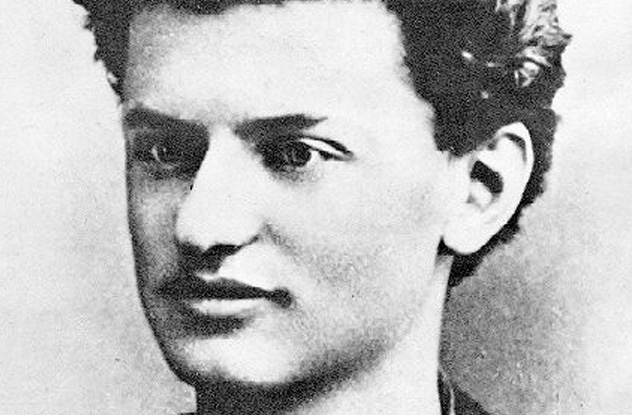
The man who came to be known as Leon Trotsky found much of his beliefs shaped by an arrest and conviction that sentenced him to four years of exile in Siberia. While in exile, Trotsky, who had been arrested for his involvement in revolutionary activities, married and had two children with Aleksandra Sokolovskaya, also a Marxist. He studied philosophy and came to understand the disagreements within the Russian Social Democratic Labor Party to which he belonged. While some within the party believed they should focus their efforts on improving industrial workers’ quality of life, soon-to-be-Trotsky’s faction believed it was more important to work toward overthrowing the monarchy while creating a disciplined revolutionary party.
Trotsky was born Lev Davidovich Bronstein, and though he used multiple pen names in his literature, not until after his escape from exile did he use the name that would become his nom de guerre: Leon Trotsky. He took on this particular name because he had stolen the passport of a jailer named Leon Trotsky in Odessa, and he had to therefore adopt the name to continue to use the falsified documents.
7Haile Selassie
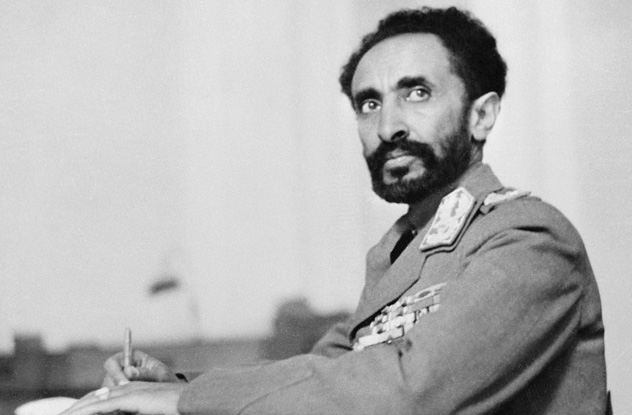
Haile Selassie’s full name as Emperor of Ethiopia was “Haile Selassie I, King of Kings, Lord of Lords, Lion of the tribe of Judah.” He was believed by many Jamaicans to be the fulfillment of two promises, one made in the Bible and another made by Marcus Garvey. Garvey had been preaching to Jamaicans throughout the early 1900s while espousing Ethiopianism and urging a movement in which Jamaicans would return to their native land in Africa.
The first promise, made in Revelations 19:16, says: “And he hath on his vesture and on his thigh a name written: King of Kings and Lord of Lords.” Further supporting the notion that Selassie was God Incarnate was that “Haile Selassie” means “the power of the Trinity.” The second promise, which was made by Garvey, directed his followers in Jamaica to “Look to Africa for the crowning of a black king; he shall be the Redeemer.”
Those who believed that Selassie was God Incarnate came to call themselves Rastafarians, a word taken from Selassie’s name before he became the emperor of Ethiopia: Ras Tafari Makonnen
6Geronimo
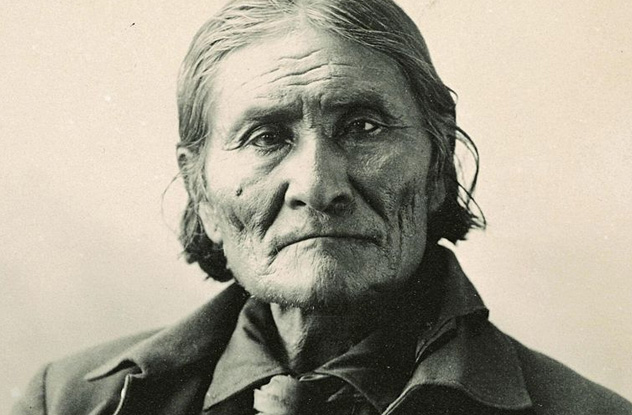
Before attacking and slaughtering the Mexican soldiers who had killed his family, the Apache warrior Geronimo was known as Goyahlka, which means “the one who yawns.” After learning of the deadly attack and seeing his loved ones slaughtered, Goyahlka’s disposition changed. According to Mark Megehee, a museum specialist at Fort Sill Museum and a member of the Sac and Fox nation, Goyahlka’s “friends noticed he was no longer mild and pleasant to deal with. He was unexpectedly violent and had a temper. He became very grieving, but he was going to settle the score.”
The attack on his family caused him to hold great hatred for the Mexican soldiers, and he would often lead violent assaults against them. During one of these attacks, the legendary Apache ignored the hail of bullets while slaying man after man using only a knife. So why did Goyahlka come to be known as Geronimo? According to one story, those attacked by the “yawning warrior” called for help from the patron saint of death, St. Jerome, which translates to Geronimo in Spanish.
5Caligula
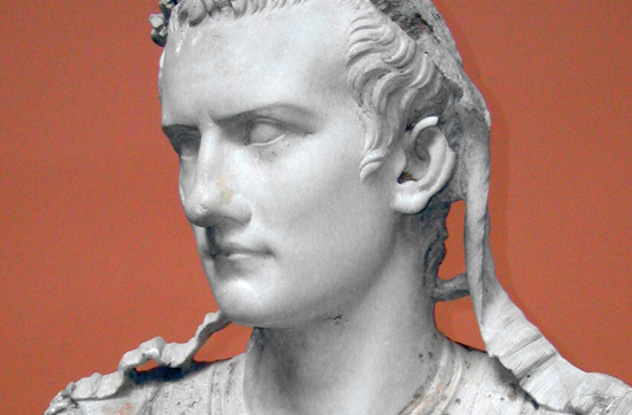
Invoking the name of Caligula immediately brings to mind the tales of excess attributed to the Roman emperor, as many seemingly outlandish stories have been told with Caligula as the central character. Though his name has now become synonymous with lunacy, lust, and violent behavior, the name Caligula was a nickname acquired in youth, and its meaning—“little boots“—was far from befitting one of Rome’s most unstable leaders.
Caligula was actually named Gaius, the son of a respected general named Germanicus. When Germanicus brought his young son along during his campaigns, he dressed young Gaius in a miniature soldier’s outfit, right down to the footwear, referred to as caliagae. So Gaius was nicknamed Caligula as a young boy by his father’s soldiers, and the name stayed with him through adulthood, though he hated it.
Tiberius, Caligula’s stepfather and the presumed murderer of his father, knew that he may have created a monster in the young Gaius, saying, “I am nursing a viper for the Roman people.”
4Ho Chi Minh
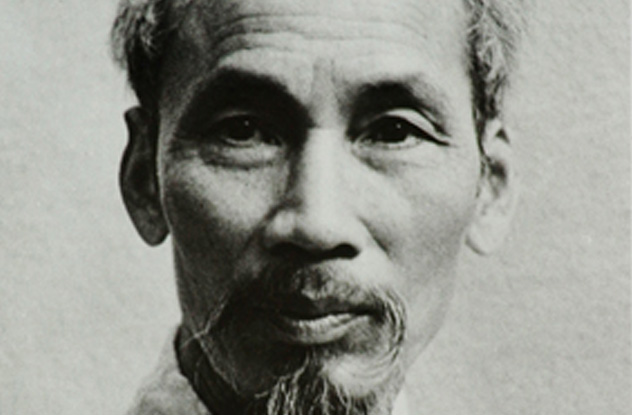
The Vietnamese communist revolutionary is so closely associated with the Ho Chi Minh name that the city once known as Saigon is now Ho Chi Minh City. Yet Ho Chi Minh was born as Nguyen Sinh Con and used several other names during his lifetime, including Nguyen Tat Thanh and Nguyen Ai Quoc, along with as many as 10 other aliases.
How Ho Chi Minh came to be known as such is somewhat disputed. The name itself means “bringer of light,” which would make sense given that the future revolutionary leader saw himself as doing work necessary to enlighten his people. The name and its meaning, however, may have been nothing more than a happy coincidence, as there is some thought that the name and identity was stolen from a recently deceased beggar. This was a popular practice among outlaws, so when arrested by the Chinese Kuomintang, Ho Chi Minh supplied his recently stolen name to officials.
3Amor De Cosmos
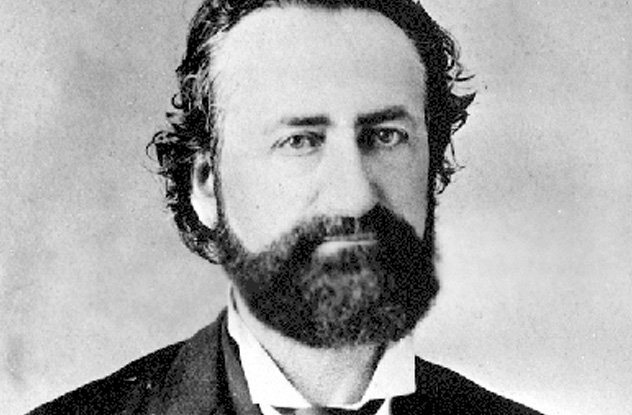
The second premier of British Columbia and founder of British Columbia’s oldest newspaper came to adopt his name from a simple matter of utility. Born William Alexander Smith, he found it difficult to separate himself from the countless other Smiths in the area. So the soon-to-be Amor de Cosmos petitioned for a name change to keep his mail from being opened by some other Bill Smith.
The name Amor de Cosmos, however, would not be so easily adopted. Due to a bit of confusion, the bill proposing the name change was forwarded to the department of military affairs because one of the senators heard “armor” instead of “amor.” The confusion did not end there, as the new name was misunderstood in various reports to have been “Armor Debosmos,” “Amor de Bosmas,” “Amor de Cashmos,” and “Amos de Cosmos.”
The bill proposing the name change then went on to the assembly, where legislators decided to have a bit of fun. One suggested that “de” implied aristocracy and should therefore be replaced with “Muggins,” while another believed that the name should include an addition so that the former Smith could be referred to as “Amor de Cosmos Caesar.”
The name change finally passed but only after a letter from Amor de Cosmos explaining why he wished to adopt his chosen name: “I desire not to adopt the name of Amor de Cosmos because it smacks of a foreign title, but because it is an unusual name and its meaning tells what I love most, viz: Love of order, beauty, the world, the universe.”
2Vladimir Lenin
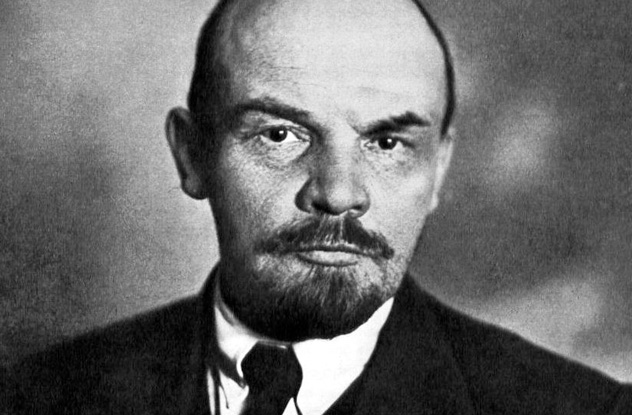
Born Vladimir Ilych Ulyanov, the founder of the Russian Communist Party adopted the pseudonym Lenin after being exiled to Siberia. While both Trotsky and Lenin changed their name during Siberian exiles, Lenin’s choice had nothing to do with stolen papers. Instead, it has been widely speculated that Lenin took his pseudonym from the nearby Lena River. A pseudonym was necessary for Lenin, whose revolutionary writings made him a frequent target of the tsarist secret police.
Lenin’s revolutionary bent began with other members of his family long before he ever adopted the name. His older brother was closely involved in a planned assassination attempt of Alexander III, and this involvement led to his arrest and eventual execution. With his father and brother dead, Lenin would have to both take care of his family and take up the cause for which his brother had died.
1Pancho Villa

Mexican revolutionary Pancho Villa came to be known as something of a modern-day version of Robin Hood. He spent several years as an outlaw who stole from the wealthy to support himself, but he also gave some of what he stole to the many Mexicans impoverished under the leadership of president Porfirio Diaz. But Villa did not set out to become an outlaw. He was forced into hiding due to an incident while working as a sharecropper for the Lopez Negretes, a well-known and powerful family.
At just 16 years of age and still known as Doroteo Arango, the man who would come to be known as Pancho Villa found a member of the Lopez Negrete family attempting to rape his younger sister, who was 12 years old at the time. Villa shot the man but had to flee to the mountains and change his name to avoid capture. He adopted the name Pancho Villa, which was the name of his fraternal grandfather.
His time on the run led him to gain acclaim as an outlaw and to form the beginnings of the army that would eventually force the corrupt dictator Diaz from Mexico. Villa controlled the northern part of Mexico during this time, and the forces assembled by Emiliano Zapato in the south ensured that Diaz could no longer remain in power.
J. Francis Wolfe is a freelance writer and a noted dreamer of dreams. When he’s not writing, he is most likely waiting for “just one more wave” or quietly reading under a shady tree.
